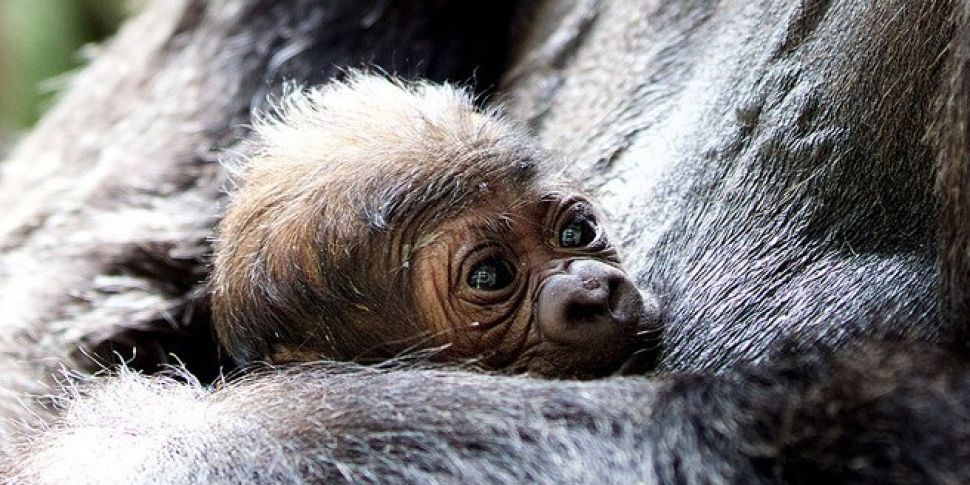Dublin Zoo has announced the arrival of a baby western lowland gorilla.
Mum, Lena, gave birth to the newborn gorilla in the early hours of Saturday morning.
Keepers have so far been unable to determine the gender because the proud mother is keeping the baby close to her chest, but they say it weighs about 1.8kgs.

Lena and her newborn baby | Via: Dublin Zoo
The leader of the team responsible for the gorillas, Helen Clarke-Bennett, said: "We are absolutely thrilled with the birth of the baby gorilla. The youngster is doing very well and is very bright and alert. Within minutes the baby was feeding which is a very good sign.”
Lena, who was born in 1984, is an experienced mother and this is her seventh baby.
“So far she hasn’t let go of her newborn. She will continue to cradle the baby in her arms non-stop for the next two to three months," Ms Clarke-Bennett explained.
"When she does eventually let the toddler out of her arms to explore, the youngster won’t go far because Lena will not allow the baby go more than an arms length away.”

Newborn baby gorilla | Via: Dublin Zoo
The baby’s father was silverback Harry, who passed away in May.
"It has been a sad time for the team after Harry’s death and this has really put a smile on everyone’s face," Ms Clarke-Bennett said.
"Big brother Kituba is taking a keen interest in the new arrival and the rest of the troop has reacted very well.
"The new arrival is a great success for Dublin Zoo as part of the European breeding programme for these critically endangered primates.”
Western lowland gorillas are classified as critically endangered by the International Union for Conservation of Nature and Natural Resources (IUCN) Red List of Threatened Species.
The numbers of these primates living in the wild is expected to fall by over 80% between 1980 and 2046 with commercial hunting and a highly contagious virus called Ebola being the two main threats facing their survival.









